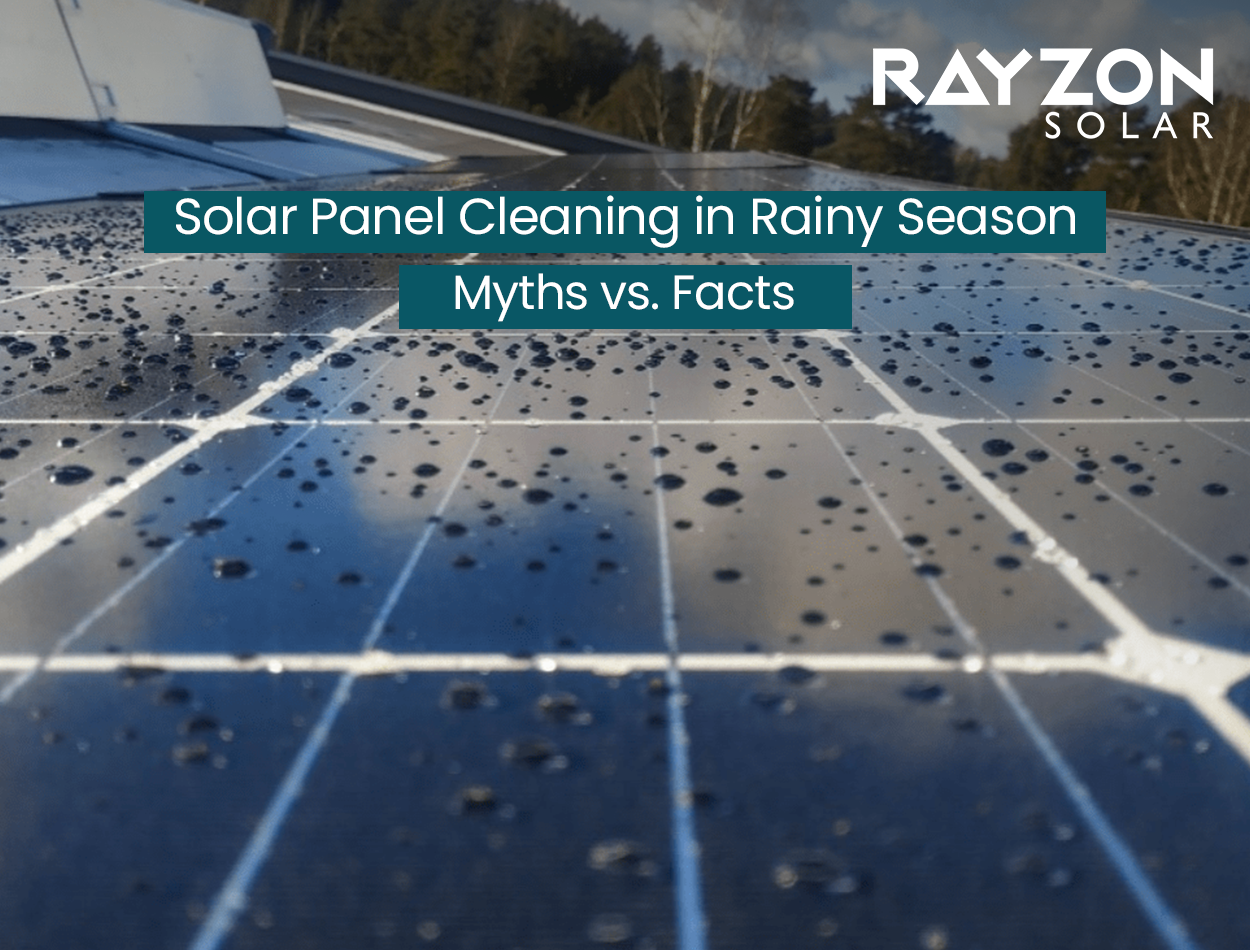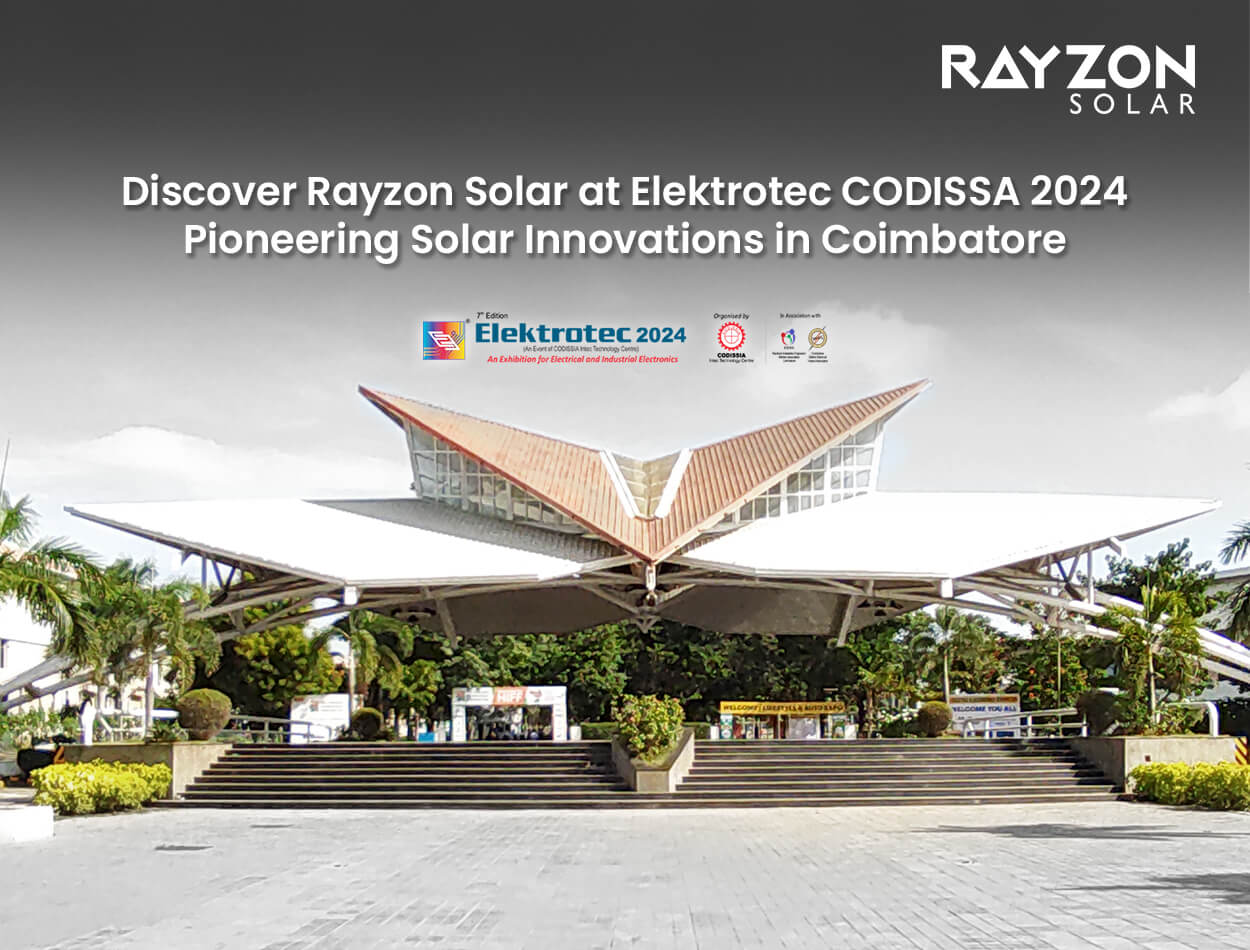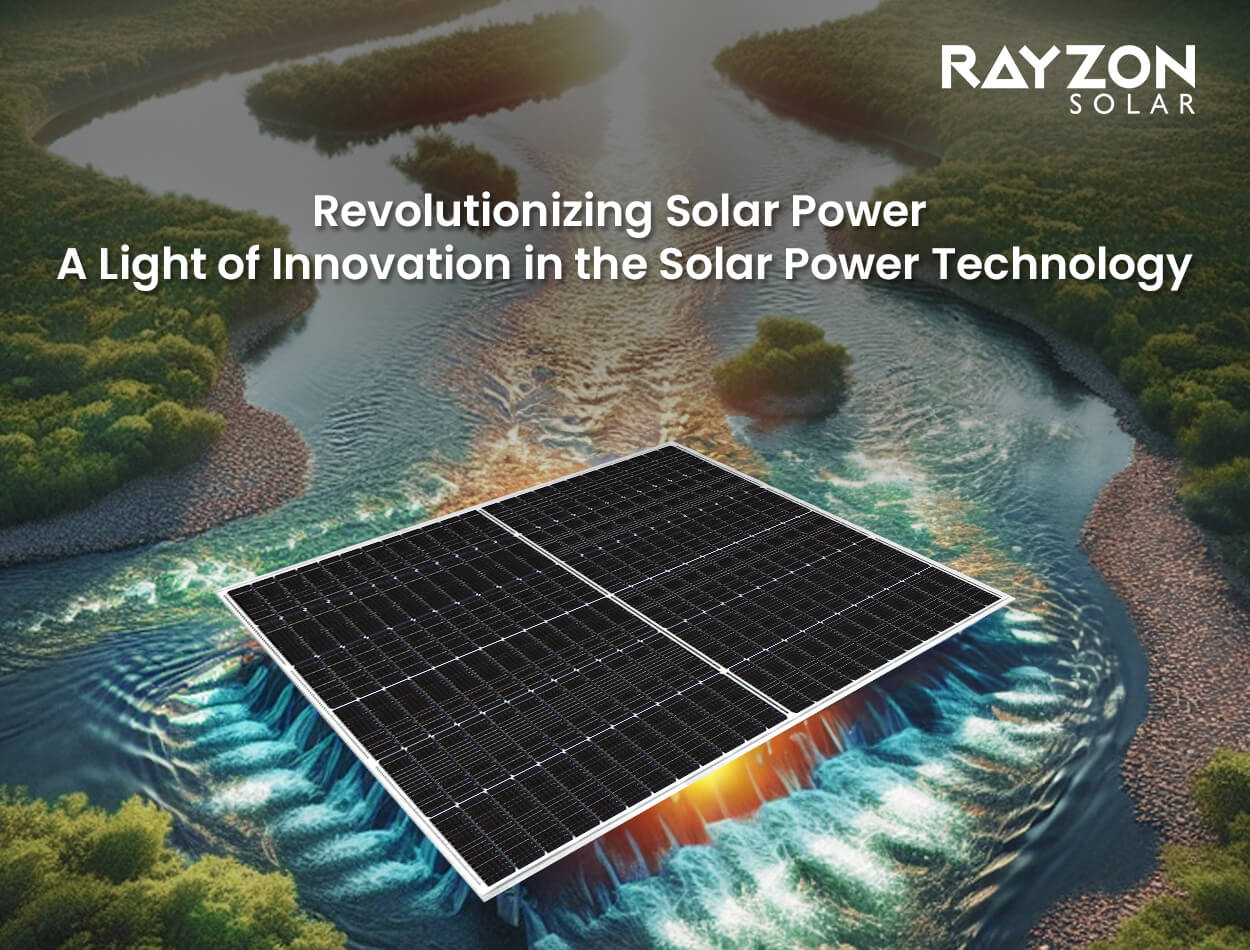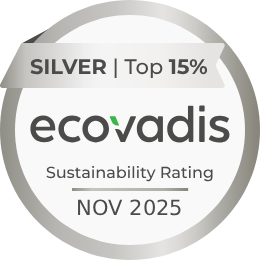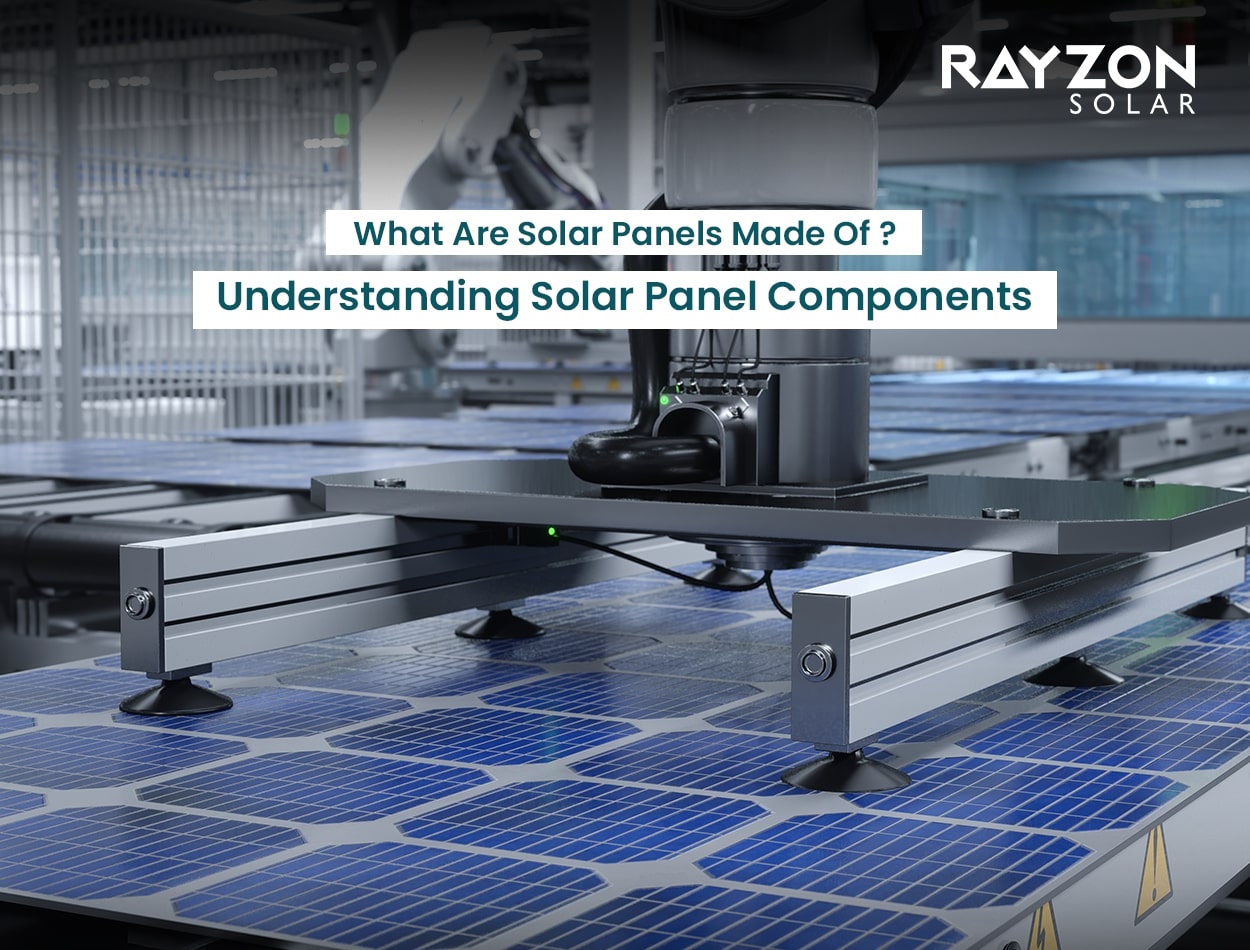
What Are Solar Panels Made Of? Understanding Solar Panel Components
Power generation through solar energy creates a modern breakthrough in electricity creation by delivering sustainable renewable power. Have you ever questioned the fundamental substances which construct solar panels? The understanding of solar panel structures provides essential knowledge for determining their capability to transform sunlight into electrical energy. The main objective of this blog involves an investigation into solar panel production materials alongside Rayzon Solar’s approach to maintain efficiency and durability in its product range.
1. Photovoltaic (PV) Cells: The Heart of Solar Panels
Solar panels contain photovoltaic cells at their foundation because these cells transform sunlight into electrical energy. Silicon functions as the most frequently used semiconductor material when producing these cells. Three main PV cell varieties exist at present.
- Monocrystalline Silicon (Mono-Si): Offers the highest efficiency due to its uniform silicon structure.
- Polycrystalline Silicon (Poly-Si): A cost-effective alternative with slightly lower efficiency.
- Thin-Film Solar Cells: The production of thin-film photovoltaic solar cells happens through the utilization of flexible materials including cadmium telluride (CdTe) or amorphous silicon. The production at Rayzon Solar includes Mono PERC and TOPCon solar cells as components to manufacture high-performing solar panels.
The Role of Silicon in Solar Cells
The main component element in PV cells remains silicon because it functions as a semiconductor. Silicon enables the transformation of sunlight into electric power as direct current (DC). Sunlight photons strike silicon to detach electrons which produce an electric current. The manufacturer Rayzon Solar selects high-purity silicon for its fabrication since it increases operational efficiency.
2. Glass Layer: Protection Against Environmental Factors
Solar panels are equipped with tempered glass which operates as their protective upper layer because it guards the PV cells from encounters with weather elements like hailfall, wind pressure and airborne objects. This glass is:
- Anti-reflective: The anti-reflective feature of the glass layer maximizes light capture to enhance efficiency.
- Tempered for durability: Solar panel top layers must include tempered glass for durability in challenging weather conditions.
Rayzon Solar utilizes high-quality low-iron tempered glass as front cover material because it enhances both efficiency and durability in its panels.
How Anti-Reflective Coating Enhances Efficiency
The essential aspect of solar glass is its implementation of anti-reflective coating (ARC). Regular glass as a surface reflects approximately 4-5% of sunlight thus causing energy to diminish. An ARC layer cuts down reflection so more sunlight reaches PV cells. The implementation of this technology allows Rayzon Solar to reach its highest possible power generation potential.
3. Encapsulation Layers: Ensuring Longevity and Performance
The space between the glass and the back sheet contains ethylene vinyl acetate (EVA) encapsulation layers. The PV cell protection system comprises different layers that create a protective seal above and below the cells to shield them from water and dirt damage. Rayzon Solar improves solar panel durability through the implementation of high-quality EVA encapsulation.
The Importance of Encapsulation in Solar Panel Longevity
PV cells require proper encapsulation to avoid oxidation and moisture exposure since these factors cause efficiency degradation over time. Rayzon Solar uses multiple protective covering systems that enhance the longevity of their panels and ensure they perform at their highest capacity.
4. Back sheet: Providing Insulation and Safety
Solar panels require the back sheet as their last layer which serves both as an electrical insulator and as protection against UV rays and environmental elements. Solar panels include a back sheet made from PVF and PET which fulfils two key functions.
- Polyvinyl fluoride (PVF)
- Polyethylene terephthalate (PET)
Solar panels receive vital protection against external hazards due to the back sheet component.
5. Aluminium Frame: Structural Support
Secure rooftop and ground mounting occurs through the implementation of a sturdy Aluminium frame that surrounds the solar panel. The panel’s resistance to wind and snow loads receives improvement through the frame’s design. Rayzon Solar equips their solar panels with corrosion-proof Aluminium frames which provide both durability and easy mounting capabilities.
Why Aluminium is the Preferred Choice
Chosen because of its lightweight and strong properties aluminium makes excellent choices for solar panel framing systems. Aluminium shows impressive resistance to corrosion which protects the material from early deterioration throughout every season of harsh weather.
6. Junction Box: Electrical Connectivity
The junction box functions as an important small unit which resides at the rear section of solar panels. The junction box contains bypass diodes to stop power losses from shading and maintain stable electrical connections. The junction boxes in Rayzon Solar systems achieve total protection through their IP67/IP68 specifications which resist both water ingress and dust accumulation.
7. Wiring and Connectors: Efficient Energy Transmission
The standard solar panels start with wire installation and MC4 connector integration for rapid and secure serial connections of multiple panel systems. The transmission process of energy loses minimal power through superior wiring quality.
The Role of MC4 Connectors in Solar Panel Systems
MC4 connectors exist as products engineered to provide durability together with efficiency. These connectors establish a waterproof secure system connection between panels to maximize performance.
How Rayzon Solar Ensures High-Quality Solar Panels
As one of the best solar panel manufacturers, Rayzon Solar follows strict quality control measures in its production process. Here’s how:
- Advanced Manufacturing Technology: Rayzon Solar employs advanced technological processes for creating highly efficient PV modules that deliver excellent output performance.
- Stringent Quality Testing: The testing regime ensures durability along with efficiency and reliability for every solar panel.
- Eco-Friendly Production: Rayzon Solar maintains sustainability through green manufacturing operations that cut down carbon dioxide emissions.
- Global Recognition: As a worldwide trusted solar panel producer Rayzon Solar operates in more than 17 market locations.
Why Choose Rayzon Solar Panels?
- High Efficiency: The panels present industry-advancing efficiency rates that deliver peak energy production.
- Durability: This structure has been built to resist major weather conditions which include high temperatures as well as heavy snow accumulation.
- Reliability: Extensive warranties accompany the devices which undergo thorough performance testing.
- Sustainability: Manufactured using environmentally friendly processes.
Conclusion
The analysis of solar panel elements reveals their effective methods for producing electricity. The entire system operates efficiently for extended periods because all components including PV cells, durable glass along Aluminium frames actively contribute to longevity. Rayzon Solar proves to be a premiere solar company which produces advanced top-quality panels that meet demanding industry quality benchmarks for residential, commercial and industrial utility needs.
Use Rayzon Solar as your reliable choice for sustainable energy solutions because they stand as the top manufacturer of solar panels.
Want to learn more? Visit Rayzon Solar today and explore our range of high-efficiency solar panels.
